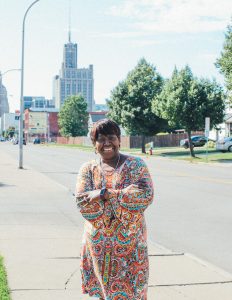
Her work at the county and state level spans a wide breadth of topics that touch all Western New Yorkers’ lives, from higher education, to environmental conservation, to small business enterprises. Her time spent serving the citizenry has been methodical, beginning at the neighborhood level in Buffalo’s Masten District, to the county level with the Erie County Legislature for 9 years, and continuing through to the New York State Assembly, where she has held office as a representative of the 141st District for the last 16 years.
“It was, quite frankly, the only way to infiltrate the party — not to start at the top,” Crystal said at her home office on Buffalo’s East Side. “It was our way of getting access to democratic politics in Erie County.”
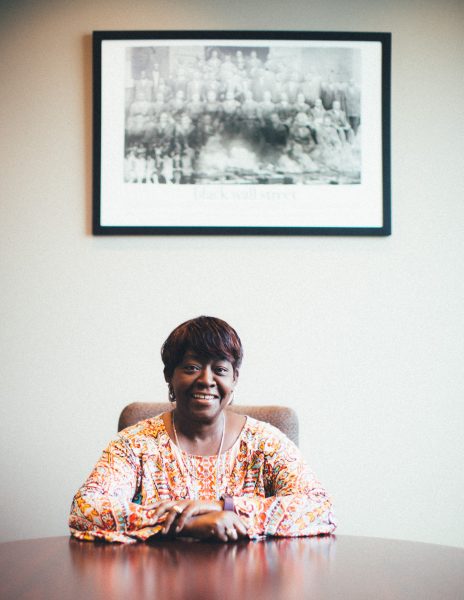
Working at the neighborhood level in governance is a grassroots effort, a position that calls for organizing on the streets.
“A lot of what we did was go into neighborhoods where the city wasn’t taking care of playgrounds, and organized the people in the neighborhood to clean them up,” she said. “It’s connecting people to the reality of politics, which is about what you need in your community and your life, to make your life of better quality…It’s really about empowering the people to do for self, and making the people who you elect do for you, and if they don’t, elect somebody else.”
This work at the street level began with Crystal’s involvement in the New York State arm of national public activist group, Citizen Action, where she was regional director from 1988 to 1993. Her work with the group taught Crystal the value and necessity of organizing people in the community to effect change.
“Direct service is not that good for people, in my opinion. I think direct action is more important for people, because then they have to get engaged in doing something that changes their lives,” Crystal said. “Starting work with Citizen Action helped me see that — organizing people to work in their own best interests is the better way, rather than just giving them something that they need.”
During her tenure with the organization, she was able to effectively prevent the building of a medical waste incinerator in her neighborhood, organized for the cleanup of Kingsley Park, which was filled with arsenic, and organized families of children who had lead poisoning, which led to the creation of a state law before she was even a state legislator. Citizen Action — which had offices in 32 states at the time — even fought for national healthcare during the 1992 presidential elections, making the issue one of their leading efforts throughout the country.
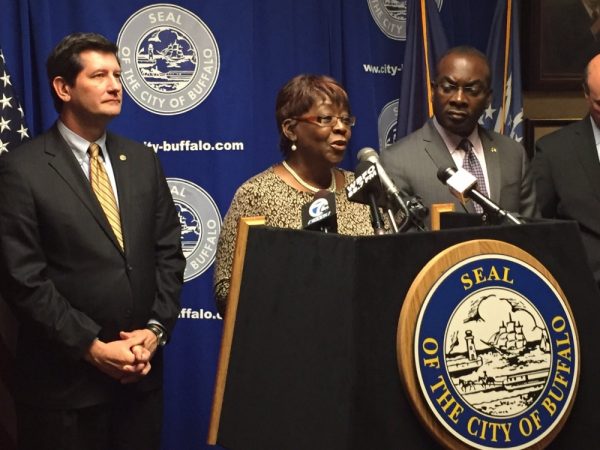
Crystal’s work in the New York State Assembly, a governing body of 150 members that acts as the lower house of the New York State Legislature, has been far-ranging and impactful on a multitude of fronts, including environmental conservation. In fact, one of her first acts as an assembly member back in 2002 was taking charge of a detrimental environmental issue that had been sitting dormant in her community, no clear leadership stepping up to the plate at the time.
“When I first got to the State Assembly, there was a toxic waste site at the corner of East Ferry and Grider, and everybody was passing the buck about who should clean it up,” she said. “Well, I knew I needed to get on the environmental conservation committee, and because I did get on that committee and worked so well with the committee and the then-chair Tom DiNapoli, the site was cleaned up in my first term.
“People say stuff like that doesn’t happen in your first term — well, it can happen in your first term, and it did.”
People say stuff like that doesn’t happen in your first term — well, it can happen in your first term, and it did.
Crystal then went on to successfully lobby for another cleanup, that of the old General Motors plant on East Delavan. The plant, which had been shuttered for about 20 years, was plagued with the presence of PCBs and no clear plan for cleanup. Because of the unrelenting work she and Senator Tim Kennedy did with the Department of Environmental Conservation, they were able to finally get the site cleaned up, making it safe for the families in the surrounding community and the next property owners to operate the site. “It’s for those reasons that you need to stay on top of bureaucracy, to make sure that things happen for your community,” she said.
“The Williams family who bought the property are now using it to manufacture a clean battery to operate the heavy construction equipment rental business that they’re in…Hopefully within the next two to three years there will be 200 people working there again, and this time they’ll be working in a clean environment, creating a clean product, that’s beneficial to us in the long run, for our environment.”
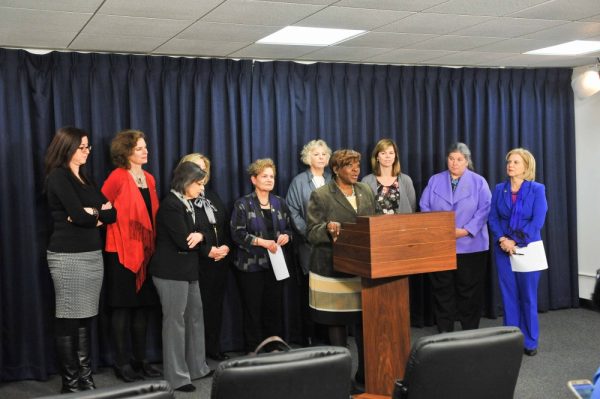
Another major issue on Crystal’s legislative roster is the Minority and Women-Owned Business Enterprise (MWBE) initiative. This programming initiative seeks to ensure that all business owners have a place at the table when the state makes decisions on procurement of services.
“People always say government should act more like a business. I don’t think that’s true,” Crystal said. “Government should not act like business because the purpose of government is to serve the people, but in order to serve them, you’re going to need to buy something from somebody, and you’re going to need somebody to fix something for you. You’re going to need to do procurement and construction in order to provide the service to the people that you’re supposed to be serving. So why not make sure that all of the people have opportunity to be the ones to do business with you, or do a construction job, or build a building?”
Crystal took this philosophy to then-Assembly Speaker Sheldon Silver, who she convinced to establish a committee to look at the issue of MWBEs in the state procurement process.
“Because we were able to do that, there are a lot more people — women and minorities — that have not only been able to grow their business, but they’ve been able to stabilize it and maintain it,” she said. “Not only does it build economy for them personally, but it builds the economy of the communities where they reside.”
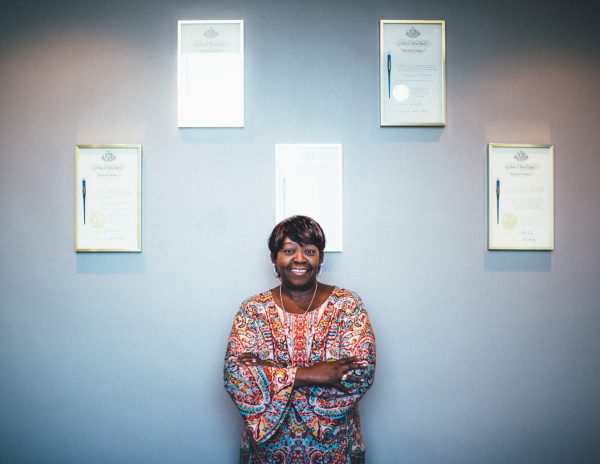
One of Crystal’s most visible pieces of work currently is her steadfast support of the legalization of marijuana for adults in New York State. Crystal has been on the frontline of the issue, which spans a decade in the making.
“It’s unconscionable when you think about the number of black and brown people that have been arrested and convicted of felony counts, dealing with marijuana,” Crystal said. “It’s just a plant, and if it’s used properly, not only is it a major health benefit for you, it’s a major detractor from things like opioids. It can help people who have borderline mental health issues. Its capacity to be beneficial to us medically is way off the chart, and we still don’t yet understand it.”
Her work on this issue is multifaceted, with much of it focused on justice for those who have been swept up in the enforcement process of archaic drug laws.
“We’ve got to stop incarcerating people for a plant that other people get with a prescription,” she said. “In addition, you have to seal the records for those already arrested. What’s preventing them from being employed, what’s preventing them from getting access to a Pell grant, what’s preventing them from even living in public housing is the fact that they have this record. You’ve got to seal that, because otherwise what you’ve done is literally shuttered people’s lives. What else are they going to do besides recidivate? When you’ve taken everything away from them, even after they’ve served their time, you’re still shutting them out.”
In addition to this social justice aspect, the business of marijuana has the potential to have a positive, direct financial impact on those communities affected by overpolicing and disparate drug trade arrests.
“The legislation would also create an opportunity for 50 percent of the revenue that’s gained from the taxing capacity to be spent in those disenfranchised communities that have been negatively impacted by this horrific war on drugs that we simply have lost,” Crystal said. “You can go to any community in America and find the ones where we lost the war on drugs, because they all look the same. The people have a sense of hopelessness because everything is taken from them, nothing is given to them, and whatever’s given to them is not to their benefit.”
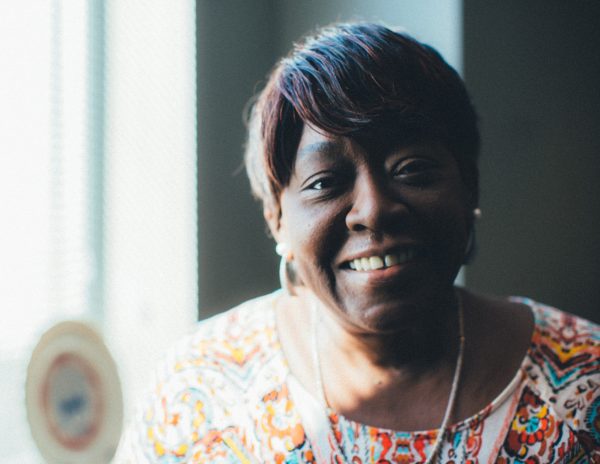
The potential economic boon of legal marijuana, which is already being felt in the nine states where recreational use is legal, and the 30 states in which medical marijuana is legal, is another critical component to this legislation.
“We have to look at how businesses are created. We have to make sure that there’s an opportunity for some equity…there are a lot of majority businesses that are in the medicinal cannabis business. They’re making a lot of money already. They’ll make even more when it’s just about adult use. Some parts of their profit have to be put back into the community as well,” she said.
“You had to be so capitalized [to be awarded a medical marijuana license]. You had to have the ability to start a grow facility, figure out how to manufacture, and set up a dispensary. You’ve got to be majorly capitalized to do all three of those. Most people would never have an opportunity to do that. Under our legislation, that’s all going to be separate. If you want to grow, you can grow. If you want to manufacture, you can manufacture. I think that will add a better opportunity for more people to have access to business.”
This recent bout of work on recreational marijuana use is about 5 years in the making; prior to that, Crystal had spent another 5 good years chipping away at the medical marijuana law, which was passed in 2014. Assembly member Richard Gottfried carried that bill, with Crystal as a major sponsor.
“I’ve known people almost my entire life who self-medicate at least once a week or more, but it’s all underground,” she said. “I didn’t see it stopping them from doing their job, I didn’t see it stopping them from raising their kids, managing a house, everything. I didn’t see any negative downsides. It made them feel better; they had a better quality of life. So why are you bothering people with that?”
Crystal’s life work in politics and community is founded in her home life growing up in the Emslie-Broadway area of Buffalo, across the street from St. Ann’s Church.
“When I was growing up, we always sat down to have dinner every night, we always went to church, we always had to go to Sunday School,” she said.
At the end of the day, we still came back together and had dinner the next day.
“My father always was a Democrat, and my mother always was a Republican. Those are the kinds of conversations we had in our household. Were some of them different and contentious, but not combative? Yes. But that’s okay. And, at the end of the day, we still came back together and had dinner the next day, with a different topic.
“I would ask, ‘Why would y’all be in different parties?’ My father would say, ‘So we can get all of the information.’ That was his answer. It’s a great idea.”
This Friday, October 12, is the deadline for voter registration in the November 6 primary elections.
Photos (unless otherwise stated) by AlanAdetolArts, L.L.C. – Birdcage Studios – Buffalo, N.Y. 14213 –[email protected]
© 2018 AlanAdetolArts Photography LLC. All Rights Reserved. All images on these pages are copyrighted. Use or reproduction without prior written permission is prohibited.